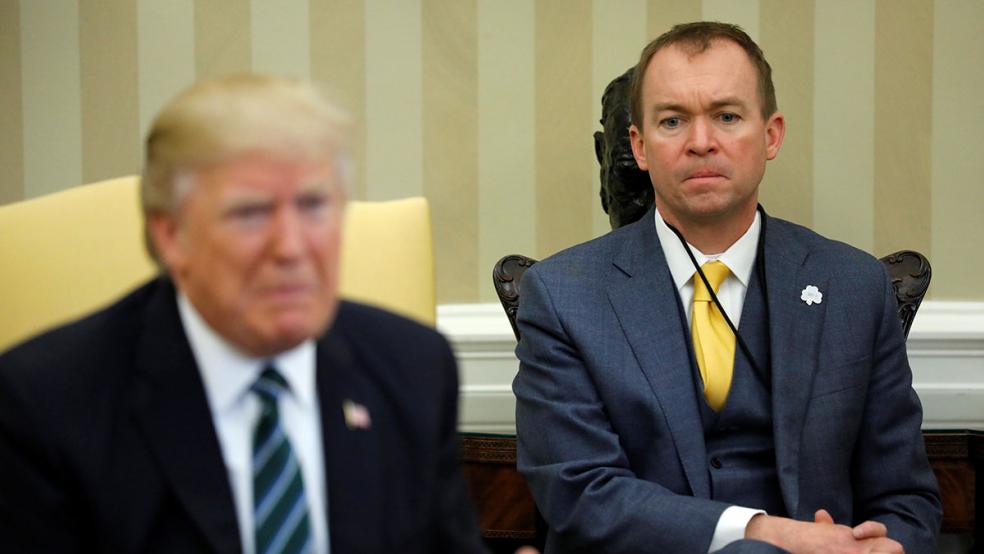The Congressional Budget Office, almost from its very inception, has been aggravating lawmakers and presidents alike by doing its best to present a clear-eyed non-partisan analysis of what proposed legislation would actually do to the fiscal health of the United States. The CBO’s first director, Alice Rivlin, led a staff that consistently challenged the now-discredited assumption from the Reagan era that tax cuts inevitably pay for themselves.
During Bill Clinton’s administration, the CBO under Robert Reischauer effectively torpedoed then-First Lady Hillary Clinton’s attempt to overhaul the nation’s health insurance system when it produced a report that estimated massive premium increases. More recently, under Douglas Elmendorf, the CBO was a frequent thorn in the side of the Obama administration, issuing analyses on topics like the minimum wage and certain aspects of the Affordable Care Act that deeply frustrating the administration.
Related: 3 Ways to Pass Health Care and Tax Reform—What’s the GOP’s Magic Number?
But for the most part, in the decades since it was created by the Budget Control Act of 1974, criticism of the agency from the White House has generally been tempered. When the agency produced a less-than-rosy report on the impact of proposed federal minimum wage increase in 2014, Jason Furman, chair of the Council of National Economic Advisers, argued forcefully against its findings, challenging assumptions and critiquing methods.
In the early months of the Trump administration, though, the tone of the arguments against CBO when the administration doesn’t like its findings have shifted sharply, with many of the attacks initiated by White House Office of Management and Budget Director Mick Mulvaney. The former South Carolina Congressman has challenged the agency’s basic competence at analyzing complex legislation -- CBO’s literal raison d'être -- and has accused it, in comments challenged by fact-checkers, of producing wildly incorrect analyses of the effects of the Affordable Care Act.
Mulvaney’s objections have been to the CBO analysis of the American Health Care Act, the GOP’s proposed replacement for the ACA. Among other things, the agency’s analysis has found that passage of the bill in its current form would result in 23 million fewer Americans with health insurance and millions more facing unaffordable premium payments.
But where previous administration critics have generally kept their objections to CBO analysis in the realm of academics, Mulvaney has stepped into new territory by accusing the agency of partisan bias.
Related: ‘More Dollars’ for Health Care: Can Anyone Explain Trump’s Puzzling Tweet?
In an interview with the conservative Washington Examiner published Wednesday, Mulvaney called for rethinking the authority of the CBO on budgetary matters, suggesting that its leadership is compromised.
“At some point, you've got to ask yourself, has the day of the CBO come and gone?” Mulvaney told the newspaper. “How much power do we give to the CBO under the 1974 Budget Act? We're hearing now that the person in charge of the [Affordable Care Act] methodology is an alum of the Hillarycare program in the 1990s who was brought in by Democrats to score the ACA.”
He added, “We always talk about it as the nonpartisan Congressional Budget Office. Given the authority that that has, is it really feasible to think of that as a nonpartisan organization?”
Mulvaney was referring to Holly Harvey, who runs the CBO’s division in charge of analyzing healthcare-related legislation. Nearly 25 years ago, Harvey was a mid-level staffer in the Department of Health and Human Services at the time when Hillary Clinton was trying to convince Congress to pass her own ill-fated health care legislation.
Related: Trump’s Budget Cuts to the Social Safety Net Are Greater Than Reagan’s
Harvey, who did two stints as an analyst at CBO, and also worked at the Congressional Research Service, rejoined CBO to head up its health care analysis section in 2009, at the beginning of the Obama administration.
This, coupled with that fact that, as a career government employee, Harvey worked at HHS during the Clinton administration, was enough evidence for Mulvaney to paint the entire CBO as a partisan political operation that ought not to possess its legislatively mandated role in budget negotiations.
“To defer to them, I think is giving them way too much authority,” he said. “Certainly there is value in having that information, especially if they could return to their nonpartisan roots. But at the same time, you can function, you can have a government, without a Congressional Budget Office.”
The irony here is that CBO is currently run by Keith Hall, a widely respected economist who also happens to have pretty unimpeachable credentials as a conservative Republican. Director Hall served as chief economist on President George W. Bush’s Council of Economic Advisers, head of the Bureau of Labor Statistics, and worked as a researcher at George Mason University’s conservative-leaning Mercatus Center.
At a time when there are few institutions of the federal government that command bipartisan respect, it’s striking to see a senior member of the Trump administration working hard to tar one of the last remaining honest brokers on Capitol Hill with the brush of partisanship.





